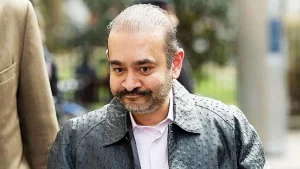New Delhi – The Nirav Modi extradition case has taken a controversial turn with Justice (retired) Deepak Verma, a former Supreme Court judge, providing an expert opinion on behalf of the fugitive businessman. This development comes as Nirav Modi recently sought to reopen his extradition proceedings in London, raising significant concerns among Indian authorities.
According to sources familiar with the matter, Verma’s expert testimony supports Modi’s plea that claims the jailed diamantaire would face interrogation by multiple agencies and would not receive a fair trial if returned to India. The Nirav Modi extradition proceedings, which appeared to have reached finality, now face renewed scrutiny due to this expert intervention.
Expert Witness Questions Indian Judicial System
Justice Verma, who also served as Chief Justice of the Rajasthan High Court, has previously appeared as an expert witness in high-profile cases. Notably, he testified for Vijay Mallya in a bankruptcy case in London filed by Indian banks led by the State Bank of India, though the former liquor baron ultimately lost those proceedings in April this year.
“The expert witness has questioned our jails and judicial system to back fugitive Modi’s case,” stated an officer involved in the Nirav Modi extradition matter, speaking on condition of anonymity. This testimony forms the basis of Modi’s attempt to challenge the extradition order that has already been upheld by UK courts.
When contacted for comment, Justice Verma declined to discuss the matter, stating he does not comment on ongoing cases.
Westminster Court Accepts Reopening Plea
The Nirav Modi extradition case saw a significant development in August this year when a Westminster court accepted Modi’s plea to reopen the proceedings. The court has scheduled a hearing for November 23, providing the fugitive businessman another opportunity to contest his return to India.
This acceptance represents a critical juncture in the Nirav Modi extradition saga, as Indian authorities believed the matter had reached its conclusion after exhausting all legal avenues in the UK judicial system.
India’s Strong Opposition and Assurances
Seeking dismissal of the proceedings at the initial stage, the Indian government has already sent a letter of assurance—essentially a sovereign guarantee—to Britain. This letter explicitly states that if the Nirav Modi extradition proceeds, the fugitive diamantaire “will only face trial” in India and “won’t be interrogated or taken into custody by any other agency.”
India maintains that the Nirav Modi extradition has already reached finality and should not be reopened. A second officer involved in the case emphasized their determination to “vehemently oppose the expert testimony,” describing it as “part of Nirav Modi’s last minute attempts to save himself because he has no legal options left.”
The Punjab National Bank Fraud Case

The Nirav Modi extradition case stems from allegations of defrauding Punjab National Bank of ₹6,498 crore, part of a massive ₹13,578 crore fraud. Approximately ₹7,000 crore of this fraud is linked to his uncle, Mehul Choksi. Modi has been lodged at Wandsworth Prison on the outskirts of London since March 19, 2019, following his arrest by Scotland Yard based on India’s extradition request.
Previous Court Rulings on Extradition
The Nirav Modi extradition order was first issued on February 25, 2021, when Sam Gooze, a district judge at Westminster magistrates’ court, ordered his return to India. The UK High Court upheld this decision on November 9, 2022, and also rejected his plea to appeal to the UK Supreme Court, effectively exhausting his legal options at that time.
Earlier Expert Witness Deemed Unreliable
During earlier Nirav Modi extradition proceedings, Modi utilized expert evidence from Justice Markandey Katju, another retired Supreme Court judge. However, Judge Gooze dismissed this testimony as “not reliable.”
“I attach little weight to Justice Katju’s expert opinion. Despite having been a former Supreme Court judge in India until his retirement in 2011, his evidence was in my assessment less than objective and reliable,” Gooze stated in the extradition judgment. He noted that Katju’s testimony “appeared tinged with resentment towards former senior judicial colleagues” and had “the hallmarks of an outspoken critic with his own personal agenda.”
Assets Attached and Recovery Efforts
Modi was declared a fugitive economic offender under the FEO Act, 2018. The Enforcement Directorate has attached his assets worth ₹2,598 crore under the Prevention of Money Laundering Act (PMLA), with ₹981 crore already restored to the defrauded banks.
Indian agencies are also pursuing legal proceedings in the UK to transfer overseas assets worth ₹130 crore linked to Modi to India, demonstrating the government’s multi-pronged approach to the Nirav Modi extradition and asset recovery case.
Related Development: Mehul Choksi Extradition
Last week, Modi’s uncle and co-accused in the Punjab National Bank fraud, Mehul Choksi, had his extradition ordered by an Antwerp court of appeals. The Belgian court ruled that Choksi is neither the subject of a “political trial” nor does he face risk of torture or denial of justice in India.
The court also dismissed Choksi’s argument that he was kidnapped in Antigua and Barbuda at the behest of Indian authorities in May 2021, providing a contrasting outcome to the ongoing Nirav Modi extradition proceedings.
Implications for November Hearing
As the November 23 hearing approaches, the Nirav Modi extradition case remains a test of Indo-UK judicial cooperation on economic offenders. The outcome will have significant implications for future extradition proceedings involving Indian fugitives seeking refuge in the United Kingdom.

